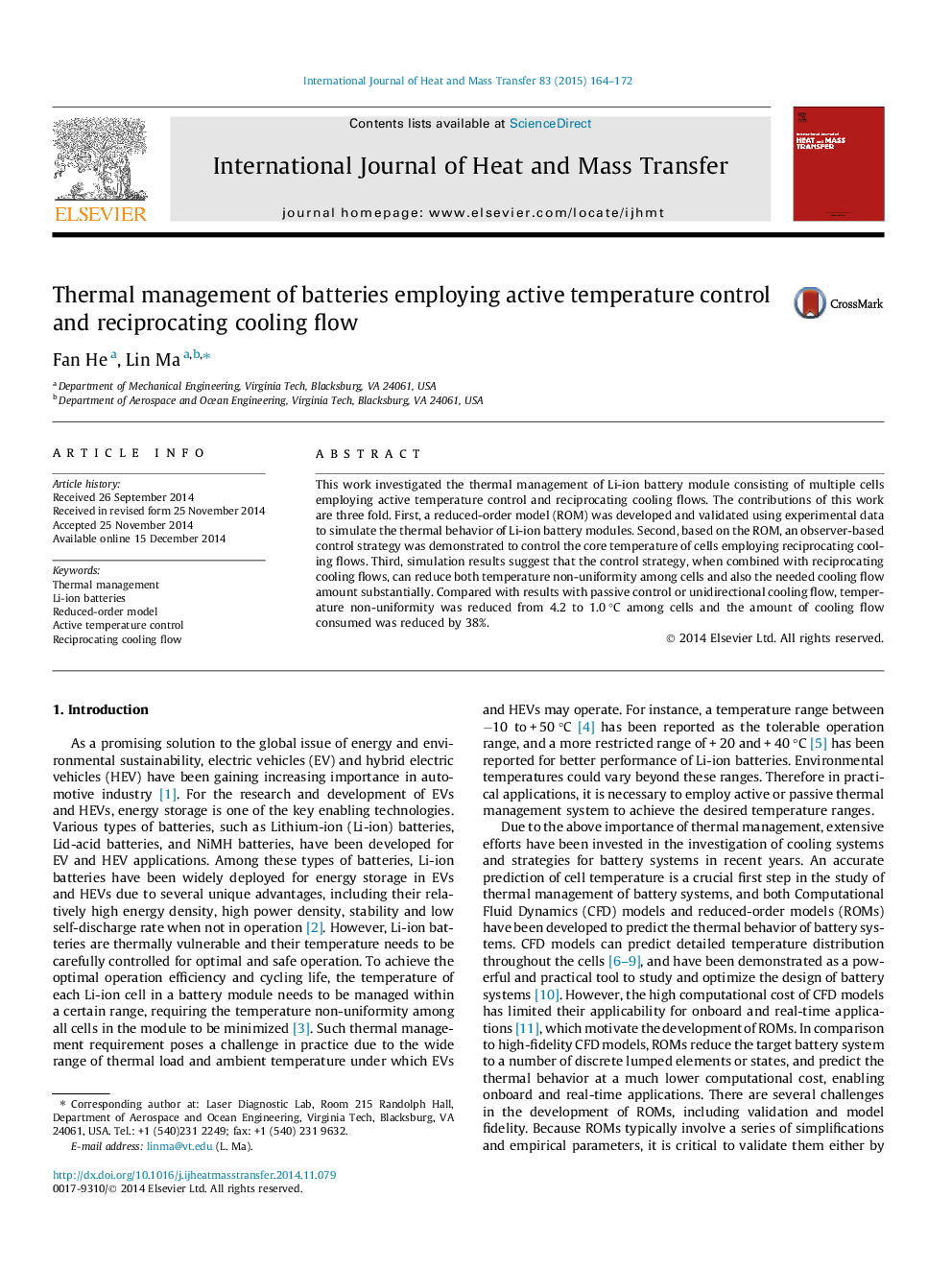| Article ID | Journal | Published Year | Pages | File Type |
|---|---|---|---|---|
| 657173 | International Journal of Heat and Mass Transfer | 2015 | 9 Pages |
Abstract
This work investigated the thermal management of Li-ion battery module consisting of multiple cells employing active temperature control and reciprocating cooling flows. The contributions of this work are three fold. First, a reduced-order model (ROM) was developed and validated using experimental data to simulate the thermal behavior of Li-ion battery modules. Second, based on the ROM, an observer-based control strategy was demonstrated to control the core temperature of cells employing reciprocating cooling flows. Third, simulation results suggest that the control strategy, when combined with reciprocating cooling flows, can reduce both temperature non-uniformity among cells and also the needed cooling flow amount substantially. Compared with results with passive control or unidirectional cooling flow, temperature non-uniformity was reduced from 4.2 to 1.0 °C among cells and the amount of cooling flow consumed was reduced by 38%.
Related Topics
Physical Sciences and Engineering
Chemical Engineering
Fluid Flow and Transfer Processes
Authors
Fan He, Lin Ma,
